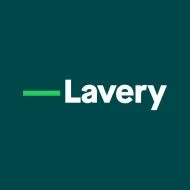There is no doubt that small and mediumsized enterprises
("SMEs") and businesses in the startup
phase (also known as early- stage businesses) face multiple
challenges when seeking financing. Not only must they identify
investors who are prepared to take the risk of investing in their
projects, they must also ensure that they comply with the rules on
raising capital imposed by the securities regulators.
Under the rules in force in Quebec and the rest of Canada, for a
corporation to raise capital, unless it has an exemption, it must
retain the services of a firm registered in an appropriate category
with the Canadian Securities Administrators, and must also prepare
and provide the purchasers with a disclosure document known as a
" prospectus".
This procedure is generally too onerous and demanding for SMEs and
startups, not to mention the obligations these companies would have
after the financing to prepare and distribute continuous disclosure
documents, such as financial statements, management's
discussion and analysis and press releases.
Thus, SMEs and startups are often limited to raising funds from
business associates, family ("love money") and accredited
investors — which are generally persons with a net income
before taxes exceeding $200,000 or net assets of at least
$5,000,000.
SMEs and startups also have the option of soliciting funds from a
broader range of investors without having to prepare a prospectus
through the use of an offering memorandum. The offering memorandum
is a disclosure document similar to a prospectus but which is more
simple to prepare and less costly. This financing alternative seems
generally to be overlooked and underused by SMEs and startups. The
lack of use of the offering memorandum is likely due to the
accompanying regulatory requirement of preparing audited financial
statements drawn up in accordance with the IFRS. This type of
financing appears to be much more popular in the Canadian
West.
However, in this regard, on December 20, 2012, the Autorité
des marchés financiers ("AMF")
issued an interim local order allowing SMEs and startups that are
not otherwise reporting issuers, as defined in the securities
legislation, to distribute their securities by means of an offering
memorandum without having to include audited financial statements
drawn up in accordance with the IFRS.
Thus, it is henceforth possible for these corporations to issue an
offering memorandum without having to prepare audited financial
statements. Moreover, the unaudited financial statements
accompanying the offering memorandum may even be drawn up in
accordance with the Canadian GAAP applying to private
issuers.
However, to take advantage of this easing of the regulatory
requirements, the issuer must limit the total amount of all of its
offerings made under this rule to $500,000 and limit the aggregate
acquisition cost per purchaser to $2,000 per 12-month period
preceding the offering (and not $2,000 per issuer). A warning must
also be added to the offering memorandum clearly informing any
purchaser of the fact that the financial statements are not audited
and are not drawn up in accordance with the IFRS, and of the limits
on the investment threshold.
It should also be noted that, under the Quebec legislation, the use
of an offering memorandum by a corporation to raise funds is
subject to translation requirements. Thus, for purposes of
soliciting financing in the province of Quebec, the offering
memorandum must either be written in French or in both French and
English.
Conscious of the financing needs of SMEs and startups, at the same
time as the AMF was announcing the easing of the rules on the
contents of the offering memorandum (which is slated to apply for a
maximum period of two years), the AMF also launched a consultation
on equity crowdfunding.
Equity crowdfunding consists of raising capital from a large number
of investors, who are not necessarily accredited investors, by
means of an electronic platform in return for the issuance of
securities. Some jurisdictions such as the United States (under
development since April 5, 2012), England and Australia have
adopted rules authorizing equity crowdfunding.
These rules generally provide that corporations may only raise a
modest amount through this type of financing. Similarly, the amount
investors may invest is also small. At present, this type of
financing is prohibited in Canada unless one has an exemption or
issues a prospectus.
The main objective of equity crowdfunding is to facilitate access
to capital at a reduced cost. However, this objective is difficult
to reconcile with recent developments in the regulation of Canadian
securities markets aimed at protecting investors.
Indeed, in carrying out their mission to protect investors,
Canadian authorities have continued to increase the regulatory
requirements (disclosure, compliance, proficiency, etc.), which
also has the effect of increasing the operating costs of the
various participants in the financial markets.
Some financial market stakeholders are concerned about the risks of
an exodus of innovative Quebec corporations and talent which could
be tempted to move south to the U.S. to finance their projects,
where they would benefit from a more streamlined and less costly
financing environment. The Canadian Securities Administrators will
have to meet the challenge of finding the difficult balance between
the financing needs of SMEs and startups and the protection of
investors.
The content of this article is intended to provide a general guide to the subject matter. Specialist advice should be sought about your specific circumstances.

